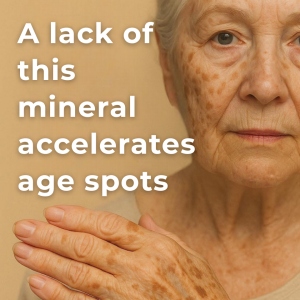
I’m 56, a doctor named Alexander, and I’ve practiced wellness routines daily for many years. At this stage of life, I feel strong and want to share insights about maintaining bone health after 50.
Why bones matter
Our skeleton keeps us balanced, prevents slouching, and supports posture. Many assume that eating cottage cheese is enough for strong bones because it’s high in calcium.
But after age 55, bones need far more than dairy. They’re living tissue, constantly renewing in response to movement and nutrition.
Movement: the foundation
If you want stronger bones after 50, the first rule is simple: move. Physical activity tells the body to reinforce the skeleton. Walking briskly for 30–40 minutes daily improves circulation and signals bones to strengthen. Sitting still, even with a calcium-rich diet, leads to bone loss.
From my own experience, walking is excellent, but light strength training works even better. Bodyweight squats, dumbbell squats, calf raises, and wall push-ups provide the stimulus bones need to regenerate.

Protein: the unsung hero
Many people focus on calcium, but protein is the true builder of bones after 50. Protein forms the collagen framework where minerals like calcium settle. Without enough protein, bones become brittle from within.
Some women reduce meat or fish, relying on dairy alone, which weakens bones. Reintroducing protein-rich foods like chicken, eggs, fish, or legumes dramatically improves calcium absorption.
Magnesium and vitamin D: the key partners
Magnesium activates vitamin D, and without vitamin D, calcium is practically useless. Nuts, spinach, buckwheat, and seeds are great magnesium sources.
Vitamin D is equally essential. Without it, calcium passes straight through the body. Sunlight, fatty fish, and doctor-recommended supplements (especially in winter) are vital. Just 15 minutes of morning or late-afternoon sun in summer can make a big difference.
Rest and stress: overlooked factors
Strong bones aren’t just about food and exercise. Quality sleep restores hormones that regulate bone health, while chronic sleep loss raises cortisol—a hormone that destroys bone tissue.
Stress has a similar effect. Meditation, deep breathing, daily walks, or relaxing hobbies help reduce cortisol and allow bones to rebuild.

The bigger picture
Cottage cheese alone—or worse, crushed eggshells—will never protect bones after 55. True bone health rests on:
• consistent movement,
• sufficient protein,
• magnesium and vitamin D,
• restful sleep,
• and stress control.
Of course, foods like dairy, fish, vegetables, and greens still matter, but lifestyle choices play the starring role.
Start small: walk more, add light strength training, eat protein at every meal, include nuts and greens, monitor vitamin D, and prioritize sleep. Follow these steps, and even after 55 your bones can remain strong—keeping you energetic, active, and independent.
Wishing you health, strength, and a positive spirit!




